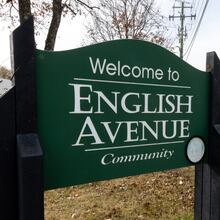MISSISSAUGA, CANADA — Decades of landscape-altering growth. Aging infrastructure. Thirty years of under-investment in transportation and reluctance to pay for it.
A delegation of top metro Atlanta civic and government leaders this week is learning that the problems facing Greater Toronto, Canada’s largest metropolitan region, sound a lot like metro Atlanta’s. The Toronto region, home to about 8.76 million, is also an amalgamation of many local governments.
The 19th Atlanta Regional Commission LINK trip will explore how the leaders of North America’s fourth largest city and its metro area handle issues like economic development, making suburbs more walkable and mobile and connecting to the city core.
Like Atlanta, Toronto has spread out from its core, but nearly a quarter of Toronto area residents take transit despite funding issues. In metro Atlanta, the figure is about 3.3 percent, according to the ARC. The region is culturally diverse, highly-educated, a banking power and home to some of Canada’s largest corporations.
The trip kicked off with panels of the leaders of Toronto’s suburban cities — suburbs that dwarf by size the city of Atlanta. Mississauga, near Toronto’s airport, has more than 700,000 people, vs. Atlanta’s 400,000.
But the Toronto area has developed its own style of functioning: a regional government and a collection of cities that tackle local issues, supplemented by a provincial government. The layers don’t always mix smoothly, and the set-up has been revised over the years.
Cooperation “is not rocket science, but it certainly is chemistry,” said David Szwarc, chief administrative officer of the Toronto region of Peel.
Toronto’s traffic is “brutal” and crippling, said Sevaun Palvetzian, CEO of nonprofit Civic Action. “We knew what was coming with the spread (of development) and we didn’t plan for it.”
But the provincial and local governments are tackling some transportation issues with plans to pump more than $16 billion into rail in the Toronto-Hamilton area, local leaders said. That isn’t enough to tackle the backlog, officials said.
Metro residents, however, remain wary of raising taxes to fund infrastructure work, a feeling not unfamiliar to metro Atlanta. Georgia lawmakers this year passed a bill to add about $1 billion a year in new transportation funds.
The delegation of metro Atlanta leaders includes about 100 participants, including the commission chairs of Gwinnett, Cobb, Clayton and Gwinnett, transportation leaders and economic development and business chiefs.
About the Author





